|
T: Thanks for agreeing to do this interview Rufus. Your fans will be happy to hear from you.
Rufus: It is my pleasure. T: We are here today to make a big announcement. Care to do the honor? Rufus: Of course. It is with mixed emotions that I am officially retiring as a Pet Therapy Provider. T: Let me be the first to express my gratitude for all the time and energy you put into your work. You were a very talented practitioner and your ability to bring joy and comfort to those in need will be missed. Rufus: It was a unique honor for me to be able to have this opportunity to give back to the community that gave me a second chance. You know, I was so close to euthanasia in that shelter in California, that I thought I had chased my last tail. I owe a great deal of gratitude to the Northern Nevada Humane Society for taking the chance on a old timer like me and to the the Sanctuary for seeing in me the potential to be an ambassador for senior dog adoption and Therapy Dog. T: You are a natural. We were only together for three months before you got your behavior certification from Pet Therapy Inc. By the time we had a regular visitation schedule going, you operated like a seasoned pro. Your looks win them over, but your gentle way of being is what makes you so remarkable. You were always calm, quiet, and attentive. Why are you hanging up the vest now? Rufus: Life has a way of coming full circle. I am beginning to suffer many of the same aliments that landed my clients in the nursing homes where I would spend time caring for them. I can still hear, but I can't tell where the noise is coming from. I can still see, but I can't really distinguish objects or people very well. All of this means I startle easily and I get nervous in new environments or crowded spaces. T: You gave back more than anyone could have imagined. The companionship you provide to me is more than enough to earn your kibble. What you did as a Therapy Dog was above and beyond the call of canine duty. I estimate that you did 100 hours of Pet Therapy time in a little under three years. How do you feel about that? Rufus: Well keep in mind that is 100 hours in human time. In dog time that would be 700 hours. T: When did you learn how to do multiplication? Rufus: Remember all the times you took me to high schools to work with kids. You didn't think I was just sleeping through all the lessons did you? T: I heard you snoring. Rufus: Any way, yes, 100 hours is a lot of time. But there are many Therapy Dogs out there who do way more than that in a lifetime. And there is so much need out there for Pet Therapy Services, I could have done 1,000 hours and it still would not have been enough. T: I could not agree more. If I was in charge of providing therapeutic interventions at long term care facilities, especially those caring for the elderly and those suffering from dementia, Pet Therapy would be my number 1 tool. I saw first hand how much a person is affected by the presence of a loving animal like yourself, and I have seen the studies which list the many measurable impacts it has on a persons health. Not only that, I have seen the other therapies and activities that are available and for many if not most of the residents, they no longer possess the cognitive function to engage with the activity in any meaningful way. Some of those who were non-responsive or even despondent, quickly perked up whenever you entered the room. Even if we were across the room, people who would ignored the TV would watch us move about attentively. There is just something about animals, the many layers of memory and emotion, it breaks through in a way that other things cannot. Rufus: Your vision for the sanctuary is becoming a reality and through your efforts more and more people will get the Pet Therapy time they so desperately need. I am honored to have been the First Pet Therapy Dog of Homer J's Senior Dog Sanctuary. T: The honor has been mine. Rufus: I think I finally get it! It all comes full circle. I see what the Sanctuary is all about. The Sanctuary is about how we all should take care of one another, because one day we will need someone to care for us too. And it is not enough to care for those who we feel "responsible" for because they are "family". I was not your family, and you decided to take care of me, and then you facilitated the same opportunity for me. T: What can I say, I like stories that come full circle. Enjoy your retirement years my friend. Any final words? Rufus: I wrote a poem actually: To all my friends in the nursing home I am sorry you are feeling lost, confused, and alone, Fear not. You will make it home soon. The family has been waiting for you. Think of all your friends from the past, certainly the dogs and I guess maybe the cats, They gave me a message, to read to you, it said, "You are safe and loved. We are waiting to meet you here... can't wait to give you a big hug."
0 Comments
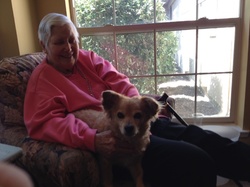 Many recognize that the idea of taking senior dogs to visit dementia care facilities is... cute. Fewer recognize pet therapy as a proven effective medical intervention with well documented mental and physical benefits. Studies conducted this year show that even medical professionals grossly underestimate its extraordinary potential. As the medical community begins to fully appreciate the value pet therapy offers, as a community, we will have to begin to figure out how to provide these services to the many who could benefit from it. A study published early in 2016, in the journal BMC Psychiatry, concluded that, "...pets should be considered a main, rather than a marginal source of support, in the management of long-term mental health problems." The goal of the research was to explore the role of pets in supporting people with long-term mental illness, like dementia. Researchers found patients relied on pets for support, relationship needs, and motivation. Despite these findings, most of the long-term care facilities I have visited do not have pet therapy on-site, and they are happy to go without it unless volunteers from the community provide the service. Residents are even discouraged from keeping their own pets because the facilities are not structured to assist with pet care. Another study conducted at John Hunter Hospital in Australia was investigating the benefits of pet therapy for those recovering from illness. It found that visits with therapy dogs, "sharply boosted [patient's] spirits and led to an unprecedented reduction in recovery times." The study, conducted in conjunction with Delta Therapy Dogs, saw up to a 30% reduction in recovery times.
Do not read this article about the study unless you are prepared to shed a small tear, as the patients in this study were children. Voluntary regional coordinator of the program, Pam Withers recalled one case where, "The very first day that we walked in, the mother [of the patient] couldn't believe it — [her daughter] actually spoke and had a smile on her face. She wasn't speaking, wasn't doing anything beforehand, she was just lying there. From that first visit, the girl just accelerated in her recovery." Based on these and many other studies which reached similar conclusions, as patient advocates, we should be demanding that pet therapy play a central role in the overall care plan for patients in hospitals, nursing homes, and mental health facilities. The care providers themselves should also begin to look for ways to implement more in-depth programs as a way of saving resources. There is just one obstacle we will need to address, supply and demand. I cannot imagine the number of dogs that would be required to provide these services to all those in need just in the Reno, NV area alone. The number would be in the hundreds not to mention that we would need to train human handlers as well. We are building our pet therapy program in hopes of beginning to address this critical need in our community. Pet therapy is a proven medical intervention and the sooner we adopt it as a standard practice, the quicker we will see cost savings from improved hospital recovery times and a reduction in unnecessary anguish of those suffering from long-term mental health diseases. The fact that we are going to fill this need with senior dogs, well that is just...cute. Note: This slice of senior dog life was written by board member M.L. Groy. I can attest that it illustrates a common experience for those of us who have taken the time to learn from the wisdom of our senior canine companions. 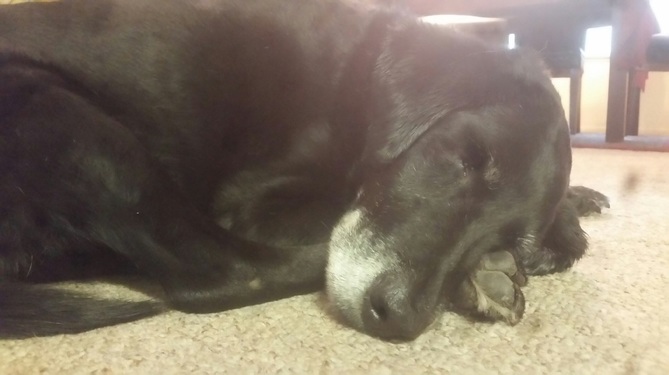 Suzy is an old dog. I have no idea how old. I took her in temporarily as a favor to a struggling acquaintance who has never returned. Suzy and I are okay with that. She is a black Labrador. Her hind quarters are a bit stiff and her mouth is a ring of gray but it does not stop her from dancing and smiling each morning when I pop open a can of food. From time- to-time, she will even chase a ball down a short hall three or four times before lying down with it between her forepaws to catch her breath. I can see that chasing the ball may have once been a single- minded pursuit for her. Not anymore. We walk most mornings, after her breakfast but before mine. It has been an adjustment learning to mosey. Our half mile loop takes a good thirty minutes. In the beginning, I would lightly tug the leash when she would stop, snout to the ground, enraptured by a fat tuft of grass. And she would come, good girl that she is. I don’t know why I was in such a hurry. We walk at five in the morning. The day is quiet and softly lit. There is no pressure or expectation. There is just Suzy and me, and all of those captivating things in the grass every twenty feet. Yet stopping made me anxious. I was compelled to keep moving. Suzy, however, was satisfied with her head down, breathing in a small patch of the world, until she knew it well enough to move on. I tried to be patient but I almost always tugged before she was done. This went on for months, her sniffing, me tugging, until a warm Thursday evening after several non-stop weeks. I was weary. I had downloaded an audiobook, a novel, onto my phone earlier in the day because it had been so long since I had enjoyed the pleasure of a story. It was playing through the speakers of my car. So, when I pulled into my garage, I just sat there in the driver’s seat with my eyes closed, listening. Imagining. It filled me up somehow. I was lighter, happier. The door from the house to the garage opened. My son stood in the threshold smirking at me. “What are you doing?” he asked. “Nothing,” I said. Then, being the good girl that I am, I turned off the car and made my way inside. The next morning, I studied the delicate pink strip inside Suzy’s floppy upper lip as she leaned forward into an overgrown mound of turf when it hit me. Each day, Suzy read a thousand well-told stories with her magnificent nose. And I smirked at her from the doorway, so single-minded about my pursuit of the ball. Why did I feel anxious to let it rest between my forepaws for a spell? Why did I deny myself the simple pleasure of a good sniff in the grass? We downright dawdle around the block these days. She has her favorite spots where she lingers: the mess of leaves blown up against a juniper; that patchy corner by that fence where the pugs live; and the juicy knoll of clover in the yard on the corner. I stand with slack in the leash, listening to my book and admiring the morning, until she has read the very last line. 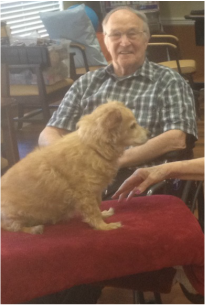 Meet Mr. W. I first met him two months ago at the dementia care facility Rufus and I visit on Friday mornings. On the day of that first meeting, although reticent, and uninterested in engaging with Rufus, Mr. W seemed to be a man with an above average level of awareness for residents in the home. He commented that Rufus was a good looking dog, he engaged with staff, and asserted his desire to return to his room, which he did under his own power. The Mr. W I met this past week was a very different person. He was agitated; he could not remember where he was, or how he got there. Staff members were doing their best to comfort Mr. W, but he was inconsolable and kept requesting, in a polite but urgent manner, that someone call his kids, because he did not think they knew where he was. Staff reminded Mr. W that it was his kids who had decided that he should live there and they would be there to visit him soon. This strategy was ineffective as Mr. W would quickly forget the conversation and resume his confused and agitated state. This whole scene unfolded in the community room where Rufus and I spend the majority of our time when we visit. Rufus was busy entertaining a cohort of old ladies, so I attempted to engage Mr. W. I approached and introduced myself, reminding him that we had met once before. He greeted me warmly, and immediately asked if I knew his kids or how to reach them. I told him I did not know how to reach them, but that they knew where he was and that he was safe. Again, a moment of relief, but I could see in his eyes a distress that suggested while he understood what I was saying, and believed me, it just served to remind him that he could not remember, and that was equally distressing. It was obvious that we could have this same conversation all day, and a new strategy was necessary. I asked Mr. W to tell me about his kids. I could see a shift immediately, his eyes opened wider, he relaxed a bit in his chair, and there was even a trace of a smile. He told me about his kids and five grandchildren. He told me about his career in banking. He told about his adventures as a pheasant and chukar hunter. He told me about a canine companion he once had named Baron. There were moments during this conversation where Mr. W would become frightened again by the idea that his family did not know where he was and would be looking for him. When this occurred, I would remind him that he was safe, his kids would be here as soon as they could, and then ask him to tell me more about his kids, his job, or his favorite hunting memories. Feeling like we had made some progress, I asked Mr. W if he wanted to spend some time with Rufus and he graciously accepted. I pushed Mr. W up to the table and watched has he actively engaged with Rufus, stroking his back and telling him what a good looking dog he was. It was a tough drove home that day. I was both pleased to know that we can and do make a difference for people like Mr. W., and saddened by the fact that we live in a world where feelings of isolation, confusion, and fear are a day-to-day reality for some. Mr. W. felt lost, he did not understand what was happening to him, and he could not reconcile why his family was not there to care for him. On the drive home, I realized how much the emotions Mr. W. was experiencing that day are the same emotions that would be experienced by a loving dog who suddenly finds themselves in a shelter. They would feel lost, alone, and unable to understand why their family was not there to take care of them. Whether these feelings belong to a senior dog who suddenly finds themselves in a shelter, to an elderly person who cannot remember how they got there, or to an at-risk young adult trying to make their way in this world, I believe we have a responsibility to address them. There are many in our world who experience these feelings every day; as soon as we become aware of how we are influenced by the energy around us and therefore recognize that the well-being of all directly impacts the well-being of us as individuals, we will begin to see the importance of addressing these moments of existential crisis, regardless of the age, species, or circumstances of the one who is experiencing them. Our vision for Homer J's Senior Dog Sanctuary extends far beyond promoting senior dog adoption. Not only will we provide sanctuary to our furry four-legged companions, but we want to create a safe space for adolescents in the foster care system to heal their emotional wounds and build a strong foundation to ensure their healthy transition to independent living and adulthood.
As part of this initiative, we will provide the kids in our program with opportunities to develop job skills and a personal ethic that will steer them towards lifestyles which support sustainability. With plans for a facility large enough to support both residents and staff, it seems logical for us to use this space and our collective energy to grow as much food as we can. We want to do more than just grow food as a means of personal sustenance, but also to take this food to market where we can share with our neighbors both nutritious food and our vision to ensure everyone's basic needs are met regardless of age, breed, or circumstance. Knowing that this was a big part of our vision and that I have no large scale farm experience, I knew I had to find a way to learn as much as I could about organic farming. The organic farming industry is unique in that it provides ample opportunity for aspiring farmers to learn from seasoned growers by way of internships. Some of you may be familiar with World Wide Opportunities on Organic Farms (wwoof.net) and National Sustainable Agriculture Information Service (attra.ncat.org), websites that seek to connect established farms with those interested in internship opportunities where they can receive hands on experience with all aspects of the farming business. While WOOF charges prospective applicants a $40 per year membership fee, ATTRA offers free service for interns to search for opportunists that meet their needs and interests. I found Terrapin farms, a 7 acre organic farm, located in beautiful Whitefish, MT on ATTRA and contacted the owner Judy by e-mail to express my interested in spending the month of June on the farm. Judy accepts interns from March through November and requires a minimum of a one-month stay. Besides learning the ins and outs of farming, from field to table, Judy provides her interns with comfortable accommodations and three, all organic meals per day; for interns who are working more than one month, there is even an opportunity to earn a stipend. Once Judy heard about my desire to incorporate farming with the Senior Dog Sanctuary she was as excited to have me as I was to be there. Judy has been growing organic food in the challenging climate of northwest Montana since long before the organic food movement began gaining momentum. With more than 25 years experience, she is a walking encyclopedia of information. Her farm produces hundreds of varieties of vegetables such as leafy greens, peppers, egg plants, tomatoes, edible flowers, and so much more. She has extensive information about all of the plants, each is like old old friend she is re-united with every spring. The 7 acre farm includes a large green house, three hoop houses, a high tunnel and row after row of raised beds for planting. The produce is for sale to both local restaurants and the community at large at two weekly farmers markets. A Day on the Farm Monday through Friday, work begins promptly at 8am. Our first task was to fulfill the wholesale orders that would be going out to local restaurants later that afternoon. Judy would meet us in the field and give us the list of items needed for that day and the poundage required. We would either work in teams of two, or head out alone with our trusty scissors (or a big knife depending on the produce in question) and two buckets (one for sitting and one for collecting the produce). Some types of produce are more fun to harvest than others. While I will avoid the painful details of which was the toughest, I will say that harvesting the amazing strawberries was my favorite task, and I will bet you can guess why. Even with 3-5 people harvesting, it would take us most of the morning to fulfill the wholesale orders, including weighing the produce and preparing the orders for delivery. Once the orders for the day were filled, it was on to my favorite part of every work day...lunch. Cooking responsibilities were rotated among the interns, but we always sat together for the shared meal in the afternoon. The meals consisted of vegetable stir fry, rice, potatoes, homemade bread (from the Bread Master) eggs, tofu, and the ultimate addition to any vegetarian meal, Bragg's Liquid Amino Acids. As a part-time vegetarian before I left for the farm, I was worried that the vegetarian diet would not meet my energy needs for long days of manual labor, but this was far from the case. The meals were plentiful and delicious. There was never a day where I walked away from the table hungry. After lunch (usually 30-40 minutes) we would return to the field for our afternoon duties. While I was there, planting, watering, and delivering the day's harvest were the main tasks. I was surprised by the overall lack of mechanization on the farm. Aside from using a tractor to shape the beds (interested interns are given the chance to drive the tractor) and a fleet of trucks older than I am that we used to take the plants and produce to market, most of the work was done by hand or trowel. We would plant long rows of peppers, tomatoes, egg plants, edible & non-edible flowers and so much more. During these mild Montana afternoons, us interns would sit across the row from one another, chatting about our past lives, and our hopes for the future as we dug our hands in the dirt and transplanted vegetables from the plastic trays used in the green house, into the ground. These were some of my favorite times. Although the schedule said the day ended at 6:30, I found this was rarely the case. Farming is not conducive to fixed start and end times. When the witching hour came, we would find ourselves with a half planted row, or needing to rotate sprinklers, or some other task that begged to be finished. No matter how long we worked the field (rarely did we stay past 8) Judy would always be the last one out. I was amazed by the vitality and energy of this woman. She out worked me time and time again and clearly demonstrated what it takes to manage an operation like this. It was hard to call it a day when someone old enough (no offense Judy) to be my grandmother was still out there working. Some of you may be wondering, "Where was Rufus during all of this?" Well, in true senior dog fashion, Rufus mostly napped during these long days. The real question is not what was Rufus doing, but where was he doing it? His early morning naps would usually take place in the bedroom of the bunk house, where I slept, on the bed, with the electric blanket on low to keep him warm. By mid-morning, when the temperature had warmed to a pleasant degree, Rufus would venture from the bunk house and rotate his sleeping spot from sun to shade and back again, in the tree lined area where we washed and weighed the produce. He was equally loved and appreciated by all, and even managed (or I should say was given the privilege based on seniority) of being the big dog on the farm. Although three times the size of Rufus, Noche, Judy's four-legged companion, allowed him to be the boss. With the work day done, we would all head for the showers and the front porch of the bunk house. Most of us hippy types, worked barefoot in the fields, and sat in the dirt any chance we got. Needless to say at the end of the day we were covered in dirt, but not to worry, it was organic dirt. Despite the long hours, even getting off as late as 8pm meant we still had three hours of daylight left. During these long days of summer, on the western edge of the Mountain Time Zone, the first stars were not seen until well after 11pm. If we had the energy, this left us plenty of time to recreate and enjoy our downtime. Some of our favorite activities were going for a swim at nearby Boot Jack Lake, or heading into downtown Whitefish (the culture and peoples of Whitefish, MT deserve their own blog) for a beer and some ping pong at the Great Northern Bar and Grill. About the Great Northern I will say this, I have never seen a moon so beautiful as the one the shines it's light on the Great Northern, and the color of her hair could only be described as electric green. Although the work days were long, and the work itself was never done, Judy always made sure that her interns got pleasure of two days off per week. In this part of Montana (or any part of Montana for that matter) that means endless opportunities for outdoor recreation. We camped, kayaked, backpacked, and day-hiked, in an environment of untouched natural beauty rarely seen in our modern world. Glacier National Park was a short forty minute drive to the north and we were surrounded by national forest, mountain lakes, and endless hiking trails. There were two lakes within 15 minutes, and Judy would allow us to take her kayaks and canoes out for a day on the water. Even Rufus got to enjoy some time on the open waters (see picture below). It is hard to describe the natural beauty, and the feeling of being surrounded by mountain peaks and trees, with scarcely another human in sight. Lessons Learned Despite spending only four weeks on the farm, I learned much more than I had anticipated. For example, shortly after returning to my home base of Reno, I went to a BBQ at a friends house, where there is a large and diverse garden. As he gave me a tour of the garden I realized how many of the plants I was able to identify by their leaves and I was even able to differentiate varieties of squash and egg plant by their fruits; even I was surprised at how this knowledge had become rooted in my mind. I credit this quick learning curve to Judy and her passion for farming and her desire to provide her interns with an unparalleled hands-on-leaning opportunity. More than just learning about the different plants and their preferences of water, sun, and soil, Judy taught me exactly what it takes to be an organic farmer. Judy is an organic farmer because she has a passion for the land and a love of organic food. Buried just bellow the surface, disguised as lessons on how to manage a farm, Judy is sharing lessons about how to live a life one can be proud of, and the dedication and hard work that it takes to take your dreams, root them deep within the earth, and watch them grow into the fruit of your daily life. For her it is more than a job, or a way to survive, it is her life's work. I could not have asked for a better mentor. I am also blessed to have spent the month with three of the most amazing people I will ever meet. Grant the Bread Master, Katerina Holy-K, and Sam J Day, and I went from strangers to lifelong friends in just four short weeks. I do not waste time asking why the universe chose to bring us together in this beautiful place, all under the tutelage of one of the most amazing woman I will ever meet, but I do like to wonder when I will get to see them again. Suffice it to say that when I do start Homer J's Senior Dog Farm, these will be the first people I call and ask to join us. So what about Homer J's farming operation, you ask? One thing I learned at Terrapin is that it takes a lot of energy to grow that amount of varieties Judy has at Terrapin (the diversity is one of the reasons interning there is so valuable). When we start growing as more than a means of organizational sustenance, I have concluded it would be best to just grow one thing and grow it well. While at Terrapin I learned that peppers love hot soil. So much in fact, that we covered the beds that peppers were planted in with a plastic sheet called IRT which raised the bed temperature by a couple degrees. Here in western Nevada, where the average temperature is at least a few degrees warmer, I am certain we could grow some of the best tasting peppers around. So be on the look out at a farmer's market near you in the coming years for Homer J's Senior Dog Pepper booth. You will recognize us because our booth will be staffed by energetic foster kids and there will be a couple old dogs rotating their napping position from sun to shade and back again. For more information about Terrapin Farms and Internship opportunties, contact Judy Owsowitz at [email protected] 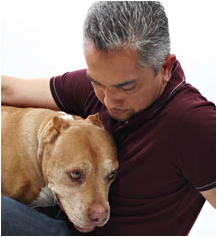 When we interviewed Cesar about Daddy's senior years, his deep emotional bond with this 14 year-old Pit Bull was apparent. He shared thoughts on Daddy's current physical health, Junior's impact on his mental health, details on his very special way to roll in the grass, and how he himself copes with Daddy's aging. Daddy is having more and more senior moments. He sometimes has trouble getting up, has to take bathroom breaks a little more often, and doesn't take the cold as well as he used to. He can't hear well, which is something that's been happening for a while. His sight is going. He has to open his eyes extremely wide. They almost look like a cats'! But his appetite is great, and his nose is still fantastic. When we go for a walk, he spends more time than ever sniffing the ground. It used to be: smell flower, pee on it; smell flower, pee on it. Now he can spend 5 minutes taking in the scent of a single flower. We still take him along on the pack walks, but where he used to be two or three feet behind me - because Daddy has always been medium level energy - now he is twenty feet behind. After about thirty minutes, he's done, and someone takes him back to the car to rest, while the younger generation continues on a longer trek. Daddy has been receiving a lot of help from acupuncture and homeopathic treatments for his stress. In my career now, I have to travel a lot. When I go away, he can become disoriented and sad, which makes him a little tense. I am really glad that Junior came into his life. It has been very helpful. He keeps Daddy alert and young. "Come on, correct me! Come on, tell me what not to do!" After this interview today, we're going to give Daddy a shower and clean his teeth. Then we'll go to his favorite spot in the park. He loves to roll in the grass - a lot of dogs do - but he has a special way to do it. He finds the highest place, then rolls down backwards. Just slides all the way down. Then he goes right back to do it again and again and again. He didn't do it in the snow, but he loves to do it in the grass. And of course, he likes to do it after he takes a shower, which I understand, but at the same time, it's like, come on Daddy! I just gave you a bath! After that, he knows I am going to give him a nice, juicy, meaty bone. He just knows. He goes to his place, like 'this is next.' He knows exactly what I am going to do. He just knows me. Daddy has always been a sweetheart. Many senior dogs lash out when someone accidentally bumps into them in a way that hurts. But Daddy just doesn't have it in his bones to respond with a bite, which is very unusual. Daddy has been my kids' grandpa. He helped me raise them. We don't share much about the whole passing away thing. Right now, we're doing some Dog Whisperer segments about letting go. It's hard to hear, because you have to come to reality. To see someone as amazing as Daddy grow old - it's painful just to think about it. But I don't want to share that around him, because he's going to think, 'What are you worried about? I'm not gone yet!' But as humans, we anticipate things, and we get emotional at the wrong time. Of course, dogs have emotions, but they don't get emotional prior to the occasion. So I won't do it in front of him. Read more: http://www.cesarsway.com/dog-care/senior-dog/daddys-senior-moments#ixzz3YA2vNU1S  Signs and symptoms of joint discomfort in dogs As the Pack Leader you must know if your dog is uncomfortable because of joint issues. Typical signs include:
Does your pooch have joint problems? How have you been treating her? From: Cesar's Way.com  There is an epidemic in this country that is not getting better. Shelter statistics are just estimates, but according to the Humane Society more than 6 million dogs and cats will enter shelters this year and half of them will not be leaving. While these numbers are a significant improvement from estimates 30 years ago, they are just estimates and we are still slaughtering these animals at a 50% rate. Aren't we the richest country in the world? Certainly we can do better than that. As stated in Mattew 25:40, "Truly I tell you, whatever you did for one of the least of these brothers and sisters of mine, you did for me.’ As animal-loving individuals in this society, we must take steps to demonstrate our reverence for all life in hopes of shifting the paradigm that keeps these shelter statistics high. What is it about our society that keeps these shelters so full? America has become a "throw-away" society that values the new, flashy, and hip, over that which may be perceived as out-dated, out-of-touch, or old news. We also tend to have very compulsive tendencies when it comes to satisfying our consumerism. This compulsion often leads to purchases that are not well researched or well-thought out, and are made without consideration for long-term repercussions. Long-story short, we want puppies and kittens. Do you know the busiest months for shelters in this country? February and March... because people have grown tired of and become frustrated with the animals that were given as gifts over the holiday season. We value the difficult work undertaken at shelters across this country. We see it as a response to a problem, not a solution. These shelters are over-crowded, under-funded, and despite all the creativity and passion in the world, are not able to adopt these pets at a fast enough rate. What is required is a shift of paradigm that changes how people satisfy their need for animal companionship. At Homer J's Senior Dog Sanctuary, we want to promote the idea of Re-Purposing in hopes of shifting attitudes about shelter dogs and opening peoples hearts in minds to the value of all life. |
Archives
October 2022
Categories |

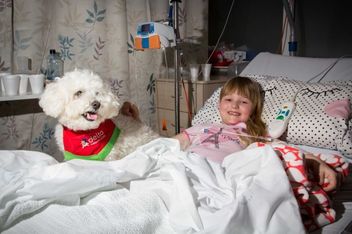
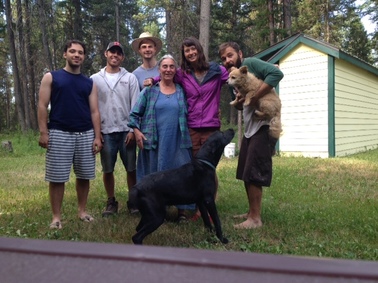
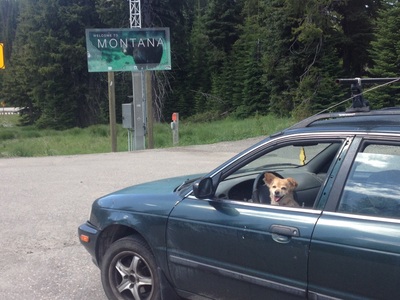
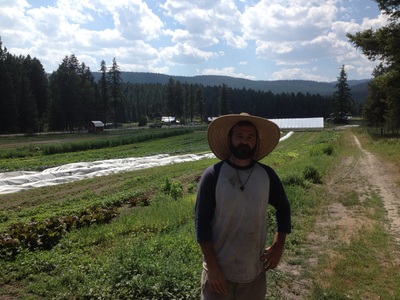
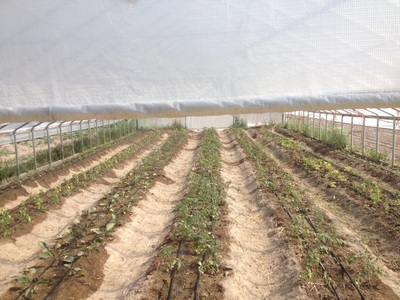
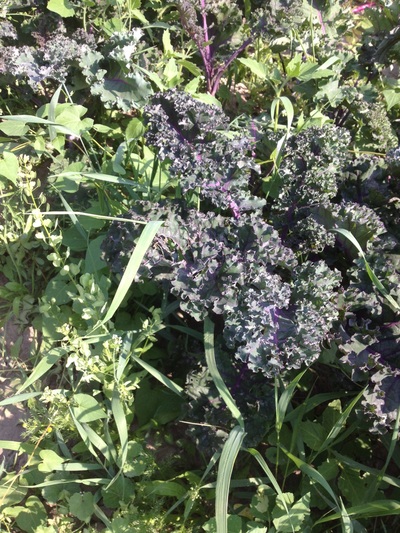

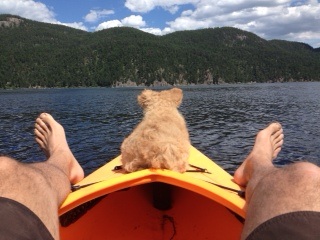
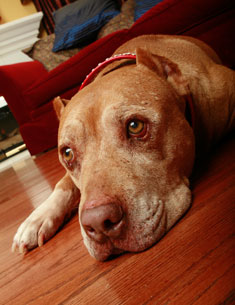


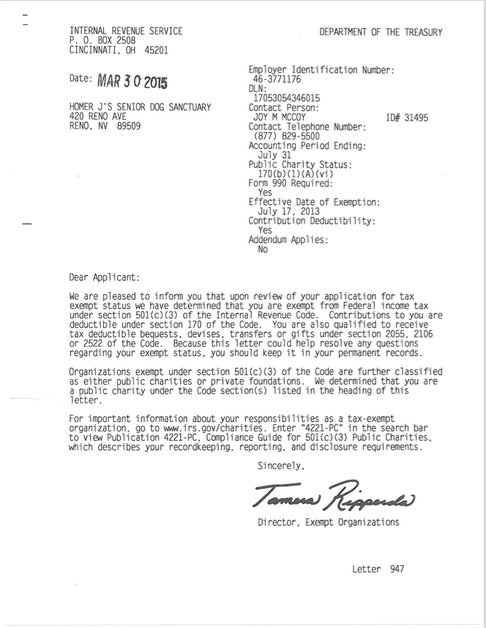
 RSS Feed
RSS Feed
